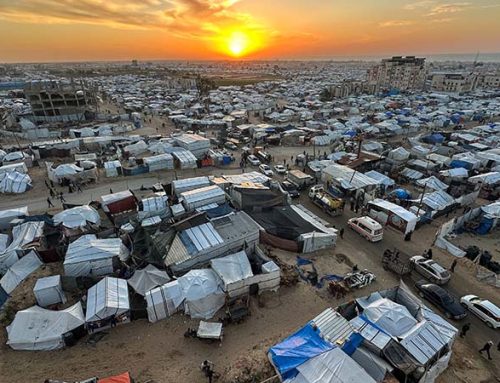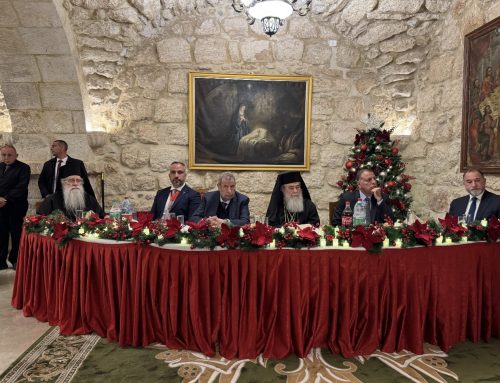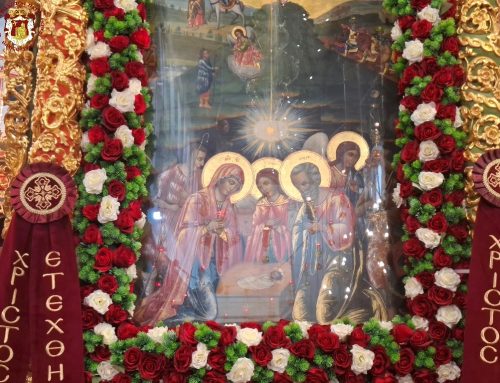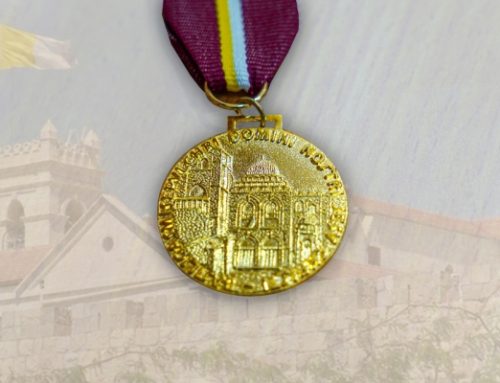Throughout much of my life, I have been engaged in attempts to improve Jewish-Arab relations in Israel. But a recent trip to Morocco, where Jews and Muslims lived in harmony for centuries, filled me with hope for my country. Life after the conflict: Act One.
Yes we can. We can imagine good relations between Jews and Arabs here, in the State of Israel, and generally in the area between the Jordan River and the Mediterranean Sea. This is the main insight with which I returned from a very meaningful trip together with members of the Shaharit “120″ program, a multicultural group working towards a new social partnership in Israel.
We, a group of 20 men and women from diverse backgrounds, traveled to Morocco during a difficult period. These days, more than ever, the Israeli-Palestinian conflict is at center stage. Violence in Gaza, despite the many casualties of the last war in 2014, is waiting to resume; a third intifada started in Jerusalem and the West Bank; more and more people fall victim to physical and verbal violence.
One hundred and thirty years after the Zionist immigration to the Land of Israel, 67 years since the founding of the state, almost 50 years since the start of the occupation, 20 years since the serious last attempt to solve the conflict – we see nothing but shooting, blood, victims, and, worst of all, despair. Many on both sides of the divide who see no way out. Conflict seems like the default reality for Jews and Arabs.
For many years I have been working on the seam line between Jews and Arabs and between Israelis and Palestinians. But last month, in Morocco, I witnessed, for the first time, the relationship between the country’s Jews and the Arab majority. Having seen it with my own eyes outside the Israeli-Palestinian context, I am more convinced than ever that a different reality for Jews and Arabs here in Israel is possible. Only there was I really able to imagine how Jews and Arabs could create a different reality here.
The Jews’ departure as a national tragedy
On Shabbat morning we walked, four Jewish Israelis, to morning prayers at the El Azama Synagogue in Marrakesh, in the heart of the mellah, the former Jewish quarter that is now a Muslim neighborhood. This synagogue was founded by Spanish Jews who settled there shortly after the Great Expulsion of 1492. We got lost in the heart of a bustling Muslim city, and in the end we came to a door marked as a synagogue. We entered straight into a prayer service with a profound sense of security that is hard to imagine in many places in Jerusalem in these days.

It makes much more sense to take Israeli high school kids on coexistence trips to Morocco than on Holocaust trips to Poland. (Tal Weintraub)
We visited the renovated Ibn Danan Synagogue in Fes, and learned that the Moroccan prime minister himself, a Muslim, had come to dedicate it a few years ago, in order to send a message about the importance the government sees in maintaining Morocco’s Jewish tradition. We walked around several Jewish cemeteries, in the heart of major cities and in tiny towns on the edge of the desert. They are all in a perfect condition, thanks to the government’s upkeep the public’s respect.
The widespread narrative in Morocco is that the departure of the Jews, organized by the State of Israel in the late 1950s and early 1960s, was a national tragedy and is even seen as a betrayal of the Moroccan people.
In Casablanca we met a group of Muslim students who started a project dedicated to promoting Jewish tradition, called the Mimouna Club. We watched the film “Tinghir-Jerusalem: Echoes from the Mellah,” by director Kamal Hachkar, that recounted the departure of the Jews from the village of Tinghir. The interviewees in the film, Israelis whose origins are in Tinghir and Muslims who still live there, all looked back on the good relations they had. “We cried when the Jews left,” said one of the old men who remembers the hasty exit of all the Jews from the village in the early 1960s.
I can’t get that sentence out of my head. I thought about European Jewry. Few cried over the murder of the Jews, fewer still did over their departure.
I’m not a historian, nor am I naïve. The relations between Moroccan Muslims and the Jewish community, the largest and virtually most prominent in the Islamic world, were not always ideal. Quite a number of violent clashes took place throughout history. But as a general rule, the Jews were respected, seen as an integral part of the Moroccan nation, and safeguarded by a special decree of the royal family.

Only a Mizrahi leader, who carries the heritage of Jewish-Arab partnership, can save the Israeli left. (Tal Weintraub)
Until 1964, the year the aliya from Morocco ended, there was a large, powerful, organized Jewish community in the country. Some of its members were also very wealthy. That was the same in Europe until the destruction of its Jewry. But unlike the European civilization, which abused and humiliated its Jews throughout its history, and in the end murdered millions of them and spewed out the rest, here Jews and non-Jews lived together amicably for 2,000 years.
What can we learn from that about the possibility of having similarly cordial relations also in Israel, in our little piece of land torn by strife? It’s hard to answer that question unequivocally. We are embroiled in a violent conflict in a small piece of land that both our nations call home, while many elements on both sides don’t even recognize the other side’s claim.
But in Morocco I was able, time and again, to imagine good relations between Jews and Arabs. When I walked around mellahs in the various cities, in the well kept and safeguarded Jewish cemeteries, in the active synagogues, when I saw us shedding our fear and walking around the heart of a Muslim city even at night, I was able to imagine Morocco of the olden days and how it could be the same here in Israel. Given the dreary situation, it may seem like a pipe dream, but the first step towards a better future is wanting to get there.
The Arabic-Hebrew translator is an Ashkenazi…
Efrat Shani-Shitrit, a fellow participant who hails from a Moroccan lineage, said at the end of the trip that high school students should be taken to Morocco instead of the Holocaust-themed trips to Poland. What a wonderful thing that would be! I, whose family felt the heat of the Nazi killing machine, would never downplay the significance of the Holocaust and the importance of remembering it, for us Jews and for humanity at large. The Holocaust should by all means be studied and commemorated.
However, these trips to Poland are often a breeding ground for a harsh ultranationalist discourse that often teach students the wrong lessons. After you visit the synagogue in the mellah on Shabbat morning, it suddenly makes perfect sense that the teenagers should travel to Morocco and not only to Poland.
Marrakesh should be complementary to Auschwitz. Let them see with their own eyes another form of Jewish life in the diaspora. Instead of sending our children to see only the place where Jews ended up being decimated, we should send them to the place where there were good relations. I’m certain that at least some of them would come back also able to imagine better relations between Jews and Arabs.
No less important, it would also help legitimize the identity and the narrative of Mizrahi teens, whose families came from Islamic countries. Instead of focusing solely on the sad fate of European Jewry, these kids will learn, together with their Ashkenazi friends, about the history of their families and communities.
During the trip, we spoke a lot about the ethnic rift in Israel, and it was painful to hear the family stories of those in my group who came from Morocco and other Arab countries. I’m familiar with the past and present discrimination against Mizrahim, but engaging with these ideas there was a formative experience for me. Thinking about the discrimination, disdain and racism they were met with in Israel while witnessing the magnificent communities that they came from, was puzzling.
“We
I recently read a research that studied the disappearance of the Arabic language among Jews from Arab countries. But I was struck by the extent of the tragedy when I saw members of my group, people whose grandparents spoke Arabic until their dying day, and whose parents’ mother tongue is Arabic, who could barely string a sentence. Under the pressure of the establishment’s efforts to erase the language, they had no command of the language, and they need me, a pure Ashkenazi, who studied Arabic in high school, to bargain for them in the marketplaces where their very grandparents were merchants. It’s inconceivable.
The more we walked around and the more we heard about the depth of the ties between Jews and Arabs in Morocco (even family names moved around, and to this day you can find Muslims named Mohammed Cohen), the extent of Israel’s political tragedy occurred to me. The people who can trace their origins to this place are the most solid powerbase of rightwing politics in Israel. This is a political camp that doesn’t want to have good relations with the Arabs or doesn’t believe that it’s possible, a camp some of whose leaders proudly bear the banner of anti-Arab racism, who exacerbate the struggle with the Arabs and fan the flames of the violent and bloody conflict.
Mizrahim for the leadership of the left
Clearly, the Morocco story is not only the story of Mizrahi Jews in Israel. It is impossible to put Morocco, Yemen, Tunisia, Syria and Iraq in the same basket. But the relations between Jews and Muslims in any of these places were never nearly as catastrophic as in Europe of the late 1930s. Ironically, at the same time, the State of Israel has been trying to resemble the West that expelled us from its midst. Israel has strived to distance itself as much as possible from any element of Arabism. And currently, it is ruled by a government that offers us only a continuation of the violent conflict with the Arabs.
Yair Assouline, a journalist for Haartez newspaper, whose father’s family came from Tinghir, wrote after seeing Hachkar’s film: “I ask myself about the disparity between the roots, the reality, a life of thousands of years, and the fact that the Israeli government has caused the Mizrahim to rebel against themselves – against their Arab identity… And in the end it will probably turn out that that woman who described herself as ‘Moroccan,’ the one who said that she misses the place and that there’s nothing like the Arabs, the one who sang those wonderful folksongs, if she still goes to vote, if she hasn’t become disgusted with everything, will also vote for the right in the end.”
I’m not accusing the Mizrahim of having been “hijacked” by the right, nor do I think they have. There are many reasons for that vote. One of them is that they protest the disparaging, arrogant and often racist attitudes of the Ashkenazi establishment, which is a replication of colonial impulses of the East-West encounters of yore. The trauma endures, and the not entirely contrite establishment is still seen as responsible.
But that does not diminish the extent of the tragedy. The right, which has been in power for 20 years now, is leading us to a violent and senseless battle against the Palestinians in the territories, and is damaging the feeble coexistence between Jews and Arabs citizens within Israel. I therefore cannot fathom why they receive such a big part of their legitimacy from people whose families harbor memories of cordial Jewish-Arab relations.
I am generalizing here, and that is very unfair to the many Mizrahim who support reconciliation with the Arabs. Still, this is a terrible tragedy and if we don’t find a way out of it, we will have to brace for a future of bloodshed.
For several years I have thought that if the left wants to return to power, it should elect Mizrahim as leaders, but in Morocco I realized there was simply no other way. The left must offer genuine and full partnership and a real place for all the communities in Israel. That’s the only way – and it’s also a good and noble one, if we want to guarantee a better future in this land for ourselves and our children. Together with the Arabs, as it used to be in Morocco, and as I haven’t stopped imagining since returning from there.
Ron Gerlitz is the Co-Executive Director of Sikkuy, a Jewish-Arab NGO that works to advance equality between the Jewish and Arab citizens of Israel. This article was first published in Hebrew on Local Call. Read it here.
Source: 972 Magazine





